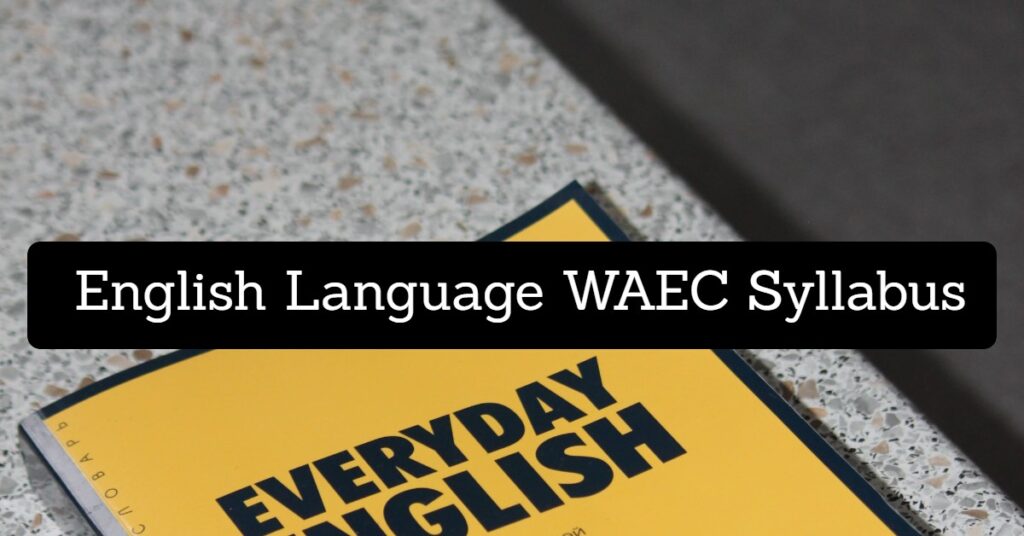
The WAEC syllabus for Food and Nutrition is a crucial resource for candidates preparing to take the examination. It outlines the aims and objectives, along with detailed notes and format for the Food and Nutrition exam.
Studying the Food and Nutrition syllabus is essential for effective exam preparation, as it provides candidates with a structured approach to understanding the topics they need to cover. Additionally, it includes notes on key concepts that candidates should focus on learning.
Attempting exam preparations without referencing the Food and Nutrition syllabus is akin to entering a farm without the necessary agricultural tools, leading to decreased productivity.
It is imperative to kickstart exam preparations by thoroughly engaging with the provided syllabus.
This post also includes recommended textbooks approved by the West African Examination Council (WAEC) to supplement your study of Food and Nutrition.
WAEC Food and Nutrition
Food is one of the basic needs of man. Without good food, an individual would not be able to function properly in all spheres of life. Good food promotes health and therefore it is important that students are exposed to ways of selecting, preparing and cooking wholesome food for themselves and others.
Foods and Nutrition as vocational subjects prepare students for the world of work. It also encourages the creative use of local foods and associated food services to meet the nutritional needs and other demands of consumers.
Aims and Objectives
The general aims and objectives of the syllabus are for candidates to
- acquire basic knowledge about foods and nutrition;
- understand the relationship between nutrition and health;
- identify career opportunities in foods and nutrition and acquire skills for further studies;
- apply the general principles underlying meal planning, selection, preparation and serving of food to feed family and other consumers for different occasions;
- understand the need for planning an efficient and safe kitchen;
- choose, use, care and store kitchen equipment and tools effectively;
- appreciate the importance of sanitation in the kitchen food preparation and service;
- apply basic principles underlying food processing, storage and preservation;
- acquire basic knowledge in consumer education;
- acquire research skills and use the information to experiment, develop and improve local dishes;
- set up a business in the food industry using all the basic skills acquired.
Scheme of Examination
There will be three papers, Papers 1, 2 and 3 all of which must be taken. Papers 1 and 2 will be composite paper and will be taken in one sitting.
PAPER 1: This will comprise sixty multiple-choice questions, all of which are to be answered within 1 hour for 60 marks.
PAPER 2: This will comprise six essay questions out of which candidates will be required to answer four. The paper will carry 40 marks and will last 1 hour and 15 minutes.
PAPER 3: This will be a practical test of 3 hours duration. It will carry 100 marks and will be conducted by a visiting examiner.
WAEC Food and Nutrition Syllabus
Nutrition and Health
- Introduction to Foods and Nutrition
- Careers associated with Foods and Nutrition
- Basic Food Nutrients
- Meal Management
- Meal Planning
- Special Nutritional Needs
Food Laboratory and Equipment
- The kitchen
- Kitchen equipment and tools
- Safety in the kitchen
- Sanitation in the kitchen
Food Commodities
- Animal and animal products – milk and milk products e.g Cheese, yoghurt, eggs, meat, poultry, fish etc.
- Cereals/grains
- Fruits and vegetables
- Legumes and oily seeds
- Fats and oils
- Starchy roots and plantain
Food Storage and Preservation
- Food spoilage
- Food preservation
- Food storage
Food Preparation
- Principles underlying cooking
- Methods of cooking
- Transfer of heat
- Cooking terms
- Food additives
- Flour Cookery and Confectionery
- Types of flour
- Basic ingredients in Flour cookery
- Raising agents
- Batters and doughs
- Batters
- Doughs
- Cakes
- Pastries
- Yeast Mixtures
- Cake Decoration
- Icing
Beverages
- Classification of beverages
- Importance of beverages
- Principles underlining the preparation of a beverage
Convenience Foods
- Types of convenience foods
- Selection and uses of convenience foods
- Advantages and disadvantages of using convenience foods
- Preparation of dishes using convenience foods
Rechauffe (Leftover) Foods
- Explanation
- Importance of using leftover goods
- Rules/guidelines for using leftover foods
- Rechauffé dishes
Festive Dishes/Special Occasion Dishes
- Explanation
- Occasions for festive dishes
- Types of festive dishes/special occasion dishes
- Preparation of festive dishes/special occasion dishes
Art of Entertaining
- Entertainment
- Table setting and etiquette
- Meal Service Style
Experimental Cookery
- Research into Local dishes and Drinks
- Experiments
Consumer Education
- Consumer Education
- Food Budgeting
- Food Purchasing
Self Employment
- Setting up and managing a catering enterprise
- Work ethics
- Packaging

